Cotswold Wildlife Park celebrates an outstanding breeding season in 2022
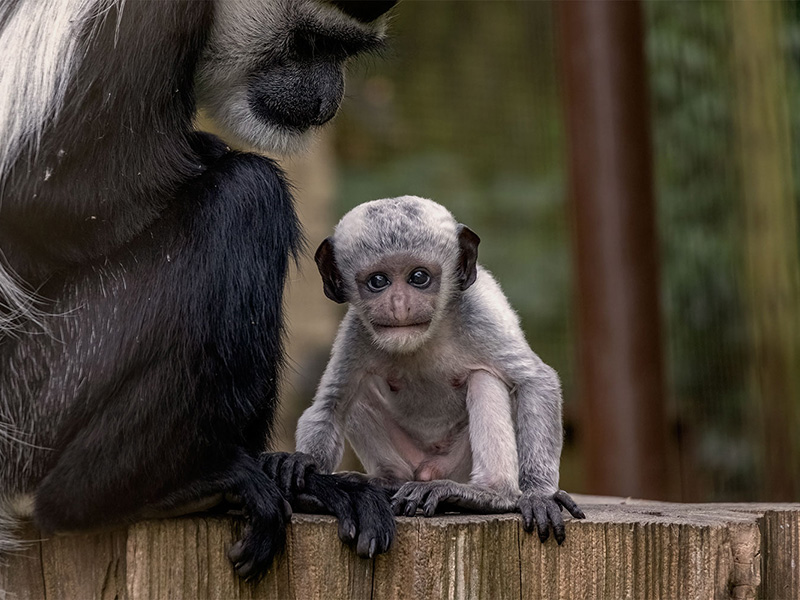
Cotswold Wildlife Park celebrates an outstanding breeding season with rare new arrivals.
Cotswold Wildlife Park is home to more than 1,500 animals from 250 different species making it one of the largest zoological collections in the UK. The Park’s commitment to its various breeding programmes has resulted in an impressive number of new arrivals – in fact over 350 births from 50 different species so far this year.
New additions include a tiny giant who recently made her debut at Cotswold Wildlife Park. The Giant Anteater pup is the third breeding success for parents Zorro and Zeta since their arrival at the Burford collection in 2010. The last time they successfully produced an Anteater pup was back in 2016. Members of the public were invited to help name the newborn via the Park’s Facebook page and the name ‘Zena’ was chosen. Visitors can see the Anteater family in their enclosure next to the Children’s Farmyard.
Curator of Cotswold Wildlife Park, Jamie Craig, commented: “Zeta has again proved to be an excellent and diligent mother. We are extremely proud of her here at the Park and it is great to see another healthy baby growing rapidly and exploring her surroundings from the safety of her mother's rather formidable back!”
The Giant Anteater (Myrmecophaga tridactyla) is considered to be the most threatened mammal of Central America and is feared extinct in Belize, El Salvador, Guatemala and Uruguay, according to the International Union for Conservation of Nature (IUCN). Giant Anteaters are listed as Vulnerable on the IUCN’s Red List of Threatened Species. Habitat loss, hunting and wildfires have substantially affected their population numbers over the last ten years. Scientists estimate that 5,000 individuals are left in the wild.
Elsewhere in the Park, keepers are celebrating the arrival of Bactrian Camel Petra. She is the first calf sired by first-time father Louis (named after Prince Louis of Wales as they were both born on the same day) and experienced mother Cleo. The wild Bactrian Camel (Camelus ferus) is classified as critically endangered by the IUCN and is thought to be one of the rarest large mammals on earth. Camels have one of the longest gestation periods for a land mammal. The Elephant boasts the longest of nearly two years, but Camels aren’t too far behind with a gestation period of approximately 360 to 440 days.
Section Head of Primates and Small Mammals, Natalie Horner, adds: "It's been a very busy time on the Primates and Small Mammals section this year too with several new births to celebrate including our Colobus Monkeys, Titi Monkeys, Cotton-top Tamarins, Dwarf Mongoose and Naked Mole Rats. We're also thrilled with our latest additions to the Lemur troop, including the birth of one of the rarest primates on earth - the Greater Bamboo Lemur. With only 30 animals in captivity worldwide, every breeding success of this critically endangered primate is very important. We’re one of only two zoological collections to have successfully bred Greater Bamboo Lemurs this year. Lastly, our pair of Crowned Lemurs recently gave birth to twins. Female Sava and her partner Izao are first-time parents and are doing a brilliant job of raising their youngsters”.
It was also a remarkable breeding year for the White Storks. Cotswold Wildlife Park is heavily involved in one of the UK’s most ambitious rewilding programmes – The White Stork Project - which aims to restore wild Stork populations to Britain – a sight not seen since the 15th century. 2022 was not only the most successful Stork breeding season in the Park’s history, with a record 33 chicks reared, but the dedicated Stork team at the Burford collection reached a milestone by breeding its 100th chick for the pioneering conservation project. This year’s chicks hatched at Cotswold Wildlife Park in May and were transferred to Knepp Castle Estate in West Sussex for release into the wild in August. To find out more about The White Stork Project, please visit: https://www.whitestorkproject.org.
Other breeding successes so far this year include: African Straw-coloured Bats (Cotswold Wildlife Park is the only UK zoological collection to exhibit this species), Dyeing Poison Frogs, Prairie Dogs, Binturong triplets, Parma Wallabies, Gundis, Black-cheeked Lovebirds, Pallas’s Cats and White Rhino ‘Queenie’ (pictured right) who was named in honour of Queen Elizabeth II to mark Her Majesty’s Platinum Jubilee. These births are testament to the dedication and hard work of the keepers at Cotswold Wildlife Park and also the Park’s commitment to its ever-growing number of conservation programmes. For more information, please visit: https://www.cotswoldwildlifepark.co.uk/conservation
Explore Gloucestershire
1 November 2022
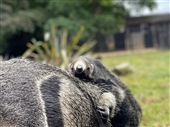 Anteater baby
Anteater baby
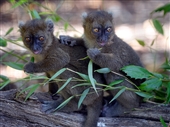 Greater Bamboo Lemur baby
Greater Bamboo Lemur baby
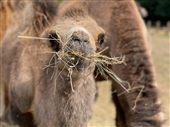 Bactrian Camel calf Petra
Bactrian Camel calf Petra
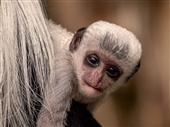 Colobus Monkey baby
Colobus Monkey baby
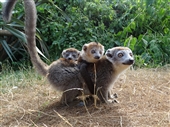 Crowned Lemur twins
Crowned Lemur twins
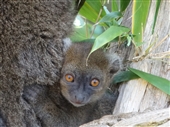 Greater Bamboo Lemur baby
Greater Bamboo Lemur baby
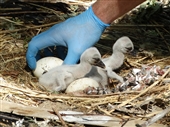 Stork chicks
Stork chicks
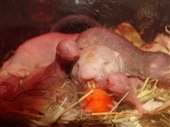 Naked Mole Rat
Naked Mole Rat
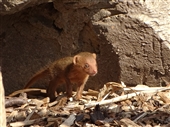 Mongoose baby
Mongoose baby
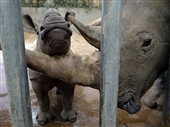 Rhino calf 'Queenie'
Rhino calf 'Queenie'
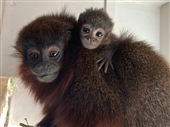 Titi Monkey baby
Titi Monkey baby
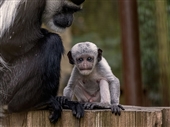 Colobus Monkey baby
Colobus Monkey baby
For further information.
OTHER NEWS
